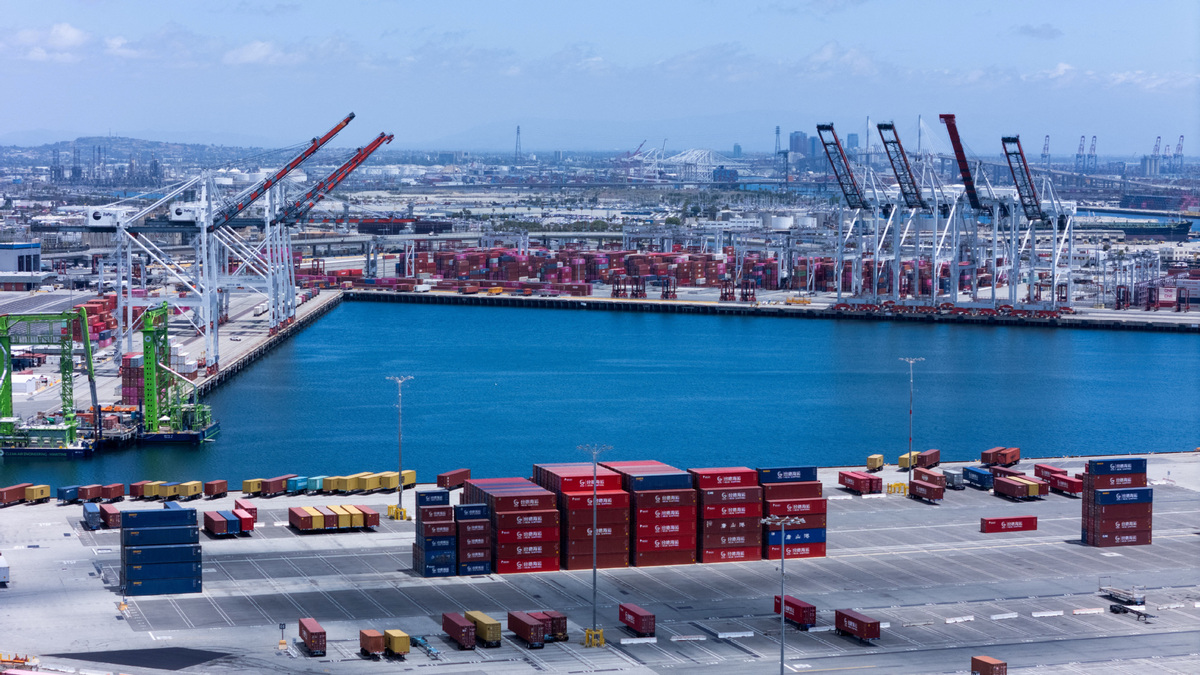
BEIJING - Government leaders, businesspeople, and analysts have voiced concerns and criticisms over the recent US tariff hikes on imported steel and aluminum, warning that the measures would not only harm the interests of US trade partners, but also fuel a global trade war and deal a blow to the world economy.
The United States started to raise tariffs on imported steel and aluminum from 25 percent to 50 percent starting from Wednesday, according to an executive order signed by US President Donald Trump on Tuesday.
The European Commission criticized the new US tariff measures, warning that the move could prompt swift European retaliation.
ALSO READ: Negotiations with EU on reciprocal tariff ‘advancing quickly,’ says US trade rep
"The EU is prepared to impose countermeasures, including in response to the latest US tariff increase," the commission's spokesperson said in an emailed statement.
The US action undermines the EU's ongoing efforts to reach a negotiated agreement with the United States, according to the statement.
As the largest supplier of US steel, Canada has called the additional levies "unlawful and unjustified," and vowed to fight.
"Canada's new government is engaged in intensive and live negotiations to have these and other tariffs removed as part of a new economic and security partnership with the United States," the Prime Minister's office said in a statement Tuesday.
"We are in intensive negotiations with the Americans, and, in parallel, preparing reprisals if those negotiations do not succeed," said Canadian Prime Minister Mark Carney on Wednesday.
Unifor, a Canadian general trade union, called on Carney to retaliate immediately and urged Canada to pause exports of critical minerals to the United States.
Hundreds of Canadian steelworkers have lost their jobs since initial tariffs took effect, said Unifor, warning that layoffs in the auto and aerospace industries could also occur.
READ MORE: US economic activity declines as tariffs pressure prices, Fed says
"This isn't trade policy, it's a direct attack on Canadian industries and workers," said Marty Warren, United Steelworkers National Director for Canada, in a statement.
Thousands of Canadian jobs are on the line, and Canada needs to respond immediately and decisively to defend workers, added Warren.
Calling the impact of the initial 25 percent tariffs "devastating," after it resulted in job losses and a drop in shipments to the United States, Catherine Cobden, CEO of the Canadian Steel Producers Association, said a 50 percent tariff will lead to a "dramatic acceleration" of those trends.
"At a 50 percent tariff, we basically consider the US market closed -- completely closed, door slammed shut, if you will -- to Canadian steel," she said. "We can't ship at 50 percent. Perhaps we can stockpile for a few days, but obviously we can't keep producing if one of our major markets is shuttered."
Gary Clyde Hufbauer, a non-resident senior fellow at the Peterson Institute for International Economics, said: "With the 50 percent tariff, not only is American steel going to be less internationally competitive but so are the multitude of American industries that depend on steel as a necessary input."
The new rate on imported steel will almost certainly enlarge the profits of domestic steel companies while US manufacturers and American households will pay dearly for the bonanza to steel barons, wrote Hufbauer in an opinion piece on Monday.
The tariffs make it more expensive for domestic auto manufacturers to produce here, and "it's an economically inconsistent, illiterate policy that seems to be hiding under the national security justifications," said Wayne Winegarden, a senior fellow at the Pacific Research Institute.
ALSO READ: Best deal with US tariff policy is no deal
"They've never given any justification why 25 percent is the right number, let alone why 50 percent is," Winegarden was quoted by a report on time.com.
According to Felix Tintelnot, a professor of economics at Duke University, no business leader should make massive upfront investments in heavy industry if they don't believe that the same policy will last for a few years.
Jeremy Flack, CEO of Flack Global Metals, a US-based steel trader and manufacturer, said the tariffs have led to a pause of orders and reduced demand for steel.
"We are not getting any orders. Volumes starting from February have begun to decline," Flack said.


